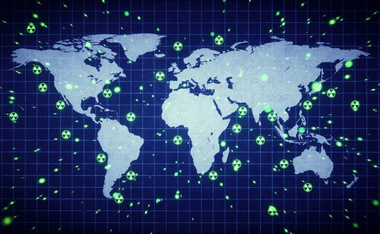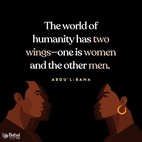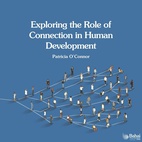The views expressed in our content reflect individual perspectives and do not represent the authoritative views of the Baha'i Faith.
Humanity’s recorded history covers roughly five to six thousand years, and our prehistory has spanned over three million years. We’ve waged war for most of that time. Now, can we stop?
Past periods of peace, sadly, have only served as relatively brief anomalies between longer periods of warfare, conquest, and slavery. Usually peace is episodic as well as regional, at times only at the village or city level or across a small area of land. Meanwhile, countries invade and defend against each other almost constantly, at least in some place in the world.
Today that kind of aggressive warfare between Russia and Ukraine has shaken the world – and it should. Russia, after all, is a nuclear power.
RELATED: Because they Exist, Will Nuclear Weapons Inevitably be Used?
A Hidden, Destructive, and Lethal Force Exists
Baha’u’llah, the prophet and founder of the Baha’i Faith, wrote these words sometime before his passing in 1892:
Strange and astonishing things exist in the earth but they are hidden from the minds and the understanding of men. These things are capable of changing the whole atmosphere of the earth and their contamination would prove lethal.
With the advent of nuclear weapons more than half a century later, and with the first use of atomic bombs in August of 1945, the race was on to develop more – and more – of these terrible doomsday devices. Today nine countries (that we know of) possess those weapons of mass destruction, and several more want to.
MAD: Mutual Assured Destruction
But since 1945, no nuclear weapons have been used in warfare. Instead, we’ve relied on the official policy of “MAD” – Mutual Assured Destruction – for deterrence. It aptly describes the absurdity and madness of creating weapons that can produce lethal contamination and destroy the human race. MAD means that no matter who starts a nuclear war, all will suffer the consequences. However, MAD is only a psychological deterrent, with little or no sway over the whims of unhinged or power-hungry leaders unmindful of the consequences.
Today, more than 13,000 nuclear warheads exist, on land, in nuclear submarines under the ocean, and maybe even in space. North Korea tests their missile delivery systems for nuclear weapons as we speak.
Political and military leaders and many others believe having nuclear weapons as a fearsome retaliatory measure against attacks provides a deterrent from being attacked. But do they? Or should the fear of their use, today a thousand times more powerful than bombs used to obliterate two Japanese cities in 1945, cause all of us to dread such terrible annihilation? And if we fear it, why haven’t we abolished it?
Shoghi Effendi, the Guardian of the Baha’i Faith, wrote in 1936 that:
The passionate and violent happenings that have, in recent years, strained to almost the point of complete breakdown of the political and economic structure of society are too numerous and complex … to arrive at an adequate estimate of their character. Nor have these tribulations, grievous as they have been, seemed to have reached their climax, and exerted the full force of their destructive power. The whole world, wherever and however we survey it, offers us the sad and pitiful spectacle of a vast, an enfeebled, and moribund organism, which is being torn politically and strangulated economically by forces it has ceased to either control or comprehend.
Three years later, Adolph Hitler’s armies invaded peaceful Poland, igniting a worldwide battle for democratic self-rule over dictatorship. Atrocities were committed with new killing machines. The very survival of all Jews as a class, and others, was jeopardized. Today, political divisions, propaganda, and aggression, combined with untold firepower, threaten all peaceful life on this planet. Peace in most places may be the absence of outright war, but war’s threat hangs over every human head.
RELATED: Is an Inclusive World Civilization Even Possible?
How Can We Make It Stop?
Individually, if crime doesn’t pay, if we are fined for bad behavior, or punished, we will usually stop. Politically, it may mean getting or losing votes for a certain ideology. For business, the balance sheet often dictates behaviors and where resources are allocated. Government has the tougher job, providing services without direct revenue because a certain population needs them who can’t afford them. Look at education, however, which we universally acclaim as a responsibility of the state, regardless of personal income. Taxes pay for services that don’t have profits in dollar and cents terms, but are necessary for the welfare of the nation.
All of this shows that as human beings, we mainly work on a reward/punishment basis, as Baha’u’llah wrote: “That which traineth the world is Justice, for it is upheld by two pillars, reward and punishment. These two pillars are the sources of life to the world.”
This bedrock moral dictum flows through every human structure. All rational decision-making weighs the pros and cons, not only practically but morally. So how do we reward non-proliferation and deter further acquisition? Obviously, the brutal destructive power of nuclear weapons does not stop certain leaders from relying on them as either threats or in potential actual use, as evidenced recently. We must halt their possible use before, too late, mutual assured destruction actually results. That kind of disarmament could happen if we found ways to enact a global ban on all nuclear weapons available now, and on building more.
But no single body and no group of leaders or nations exists today that has any real influence over the nine nations that command nuclear capabilities. The doctrine of national sovereignty stands in the way – not only of disarmament, but of the survival of our species. That means in order to survive we must create a new paradigm, enacting a substantial change in the world’s current governmental structure. In the next essay in this two-part series, we’ll examine what that change might look like.
You May Also Like
Comments

















If that was a fact, how could we have survived as a species during these three million years?
I would like to hear/read your opinion on the books “Humankind: A Hopeful History” (by Dutch historian Rutger Bregman) or “Sapiens: A Brief History of Humankind” (by Israeli historian Yuval Noah Harari).